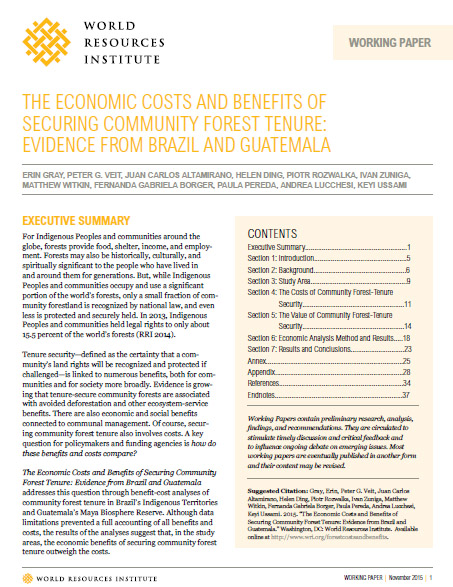Resource information
Evidence is growing that tenure-secure community forests are associated with avoided deforestation and other ecosystem-service benefits. There are also economic and social benefits connected to communal management. But securing community forest tenure also involves costs, including costs to establish supportive legislation, to demarcate and register the lands, to monitor and protect the lands as well as opportunity costs. This Working Paper builds upon the Securing Rights, Combating Climate Change report by asking, what are the costs compared to the benefits of securing and maintaining community forest tenure for community forest areas? It addresses this question through benefit-cost analyses of community forest tenure in Brazil’s Indigenous Territories and Guatemala’s Maya Biosphere Reserve.
Although data limitations prevented a full accounting of all costs and benefits, the results of the analyses suggest that, in the study areas, the economic benefits of securing community forest tenure outweigh the costs. It shows that securing community forest tenure is a low-cost, high-benefit investment that benefits communities, countries, and global society. The results of the benefit-cost analyses also suggest that investing in strong community forest tenure security can be a cost-effective measure for climate-change mitigation when compared with other mitigation measures. Economic valuation can act as a tool for promoting more informed decision-making in countries with community forest populations. As such, addressing data-collection constraints could lay the groundwork for a deeper understanding of the net economic gains from community forests.


